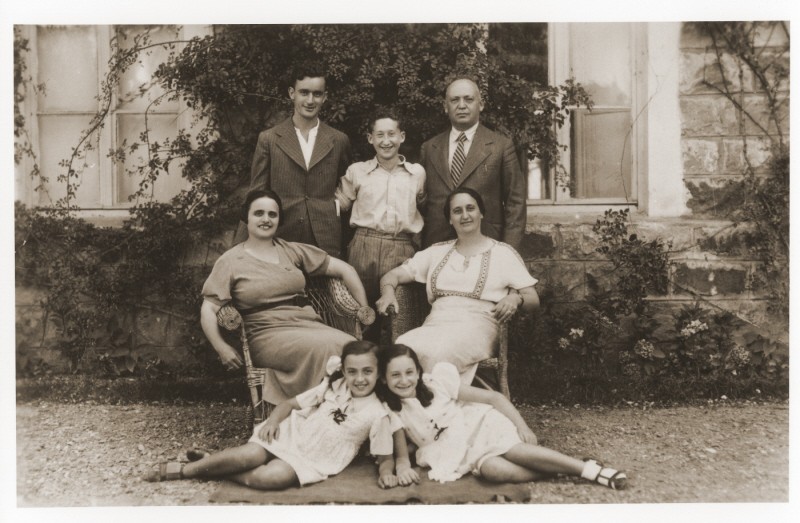
Salonika
Before World War II, Salonika (Thessaloniki) had the largest Jewish community in Greece. During the years 1941 to 1943, following the German occupation, the ancient and vibrant Jewish community of Salonika was destroyed.
The city of Salonika is located in northern Greece. After the invasion and occupation of Greece in April 1941, Salonika was included in the German occupation zone. The city was occupied by German forces in early April.
Before World War II, Salonika had the largest Jewish community in Greece. At the time of the German occupation, the Jewish population was about 50,000. Within a week of the occupation, the Germans arrested the Jewish leadership, evicted hundreds of Jewish families and confiscated their apartments, and expropriated the Jewish hospital for use by the German army. The Germans plundered tens of thousands of cultural and artistic properties from Jewish academies, synagogues, and private homes, and sent the plunder to Germany.
In mid-July 1942, the Germans forced 9,000 Jewish males of Greek citizenship between the ages of 18 and 45 to assemble at Liberty Square (Plateia Eleftheria), where they were registered for forced-labor assignments. Throughout the day, the Germans humiliated and beat these men. Two thousand Jews were assigned to forced-labor projects for the German army. The German authorities demanded a ransom for the release of the Jews. The Jewish community in Salonika collected money in Salonika and Athens and sold the Jewish cemetery in Salonika to raise the required sum. (Salonika's city administration purchased the cemetery, then broke up the headstones for construction materials and later built a university at the site.)
In February 1943, German authorities concentrated the Jews of Salonika in two ghettos, one in the east of Salonika and one in the western, Baron de Hirsch quarter of the city. Jews were concentrated in the western quarter, near the railway station, in preparation for impending deportations. Between March and August 1943, the Germans deported more than 45,000 Jews from Salonika to the Auschwitz-Birkenau killing center. Most of the deportees were gassed on arrival in Auschwitz.
Jews holding identity papers or visas issued by neutral governments were not deported. More than 300 Jews with Spanish papers were transferred to Spain via the Bergen-Belsen camp in northern Germany. Some Jews escaped from German-occupied Greece to the Italian occupation zone or to Palestine. About 500 Jews from Salonika avoided the deportations by escaping to nearby mountains, where they joined partisan units that fought the Germans.
Fewer than 2,000 Jews lived in Salonika after the war. During the years 1941 to 1943, the ancient and vibrant Jewish community of Salonika was destroyed.